


RESILIENCE FOR THE FUTURE 2024
An International Research Roundtable about Resilience in Times of Uncertainty
6 November 2024
2:30 PM – 7:00 PM CET
Online
In an era marked by global conflicts and environmental crises, in which the psychosocial consequences of the Covid-19 pandemic are still vivid, understanding resilience becomes crucial for developing effective intervention strategies to promote individual and social well-being. For this purpose, the Patrizio Paoletti Foundation has organized the event “RESILIENCE FOR THE FUTURE: An International Round Table to Promote Resilience in Times of Uncertainty”, bringing together scientific contributions from an international perspective.
In particular, we aim to explore the following topics together:
- Innovation and models in resilience research from a multidisciplinary perspective
Resilience, understood as the ability to face adversity and emerge improved from it, has assumed a central role in research. Through interdisciplinary approaches that combine neuroscience, psychology, and pedagogy, it is possible to explore the complexity of this construct and identify models and practices to promote resilience at both individual and collective levels.
- Constructs related to psychological resilience
Exploring factors related to resilience, such as coping, emotional regulation, and adaptability, can provide a comprehensive view of the intrapersonal and interpersonal resources needed to overcome adversity and learn from it. - Assessment procedures for psychological resilience and related variables
Given the proliferation of resilience definitions in scientific literature, it is also necessary to reflect on the procedures for measuring the construct, which enable the identification of strengths and areas for improvement, thus facilitating targeted and personalized interventions. - Techniques and interventions to empower individuals in the face of post-pandemic challenges, climate change, natural risks, and diplomatic conflicts
The development of techniques and interventions aimed at empowering individuals in unstable post-pandemic, climatic, and geopolitical contexts is crucial for promoting post-traumatic growth. - Resilience across the life cycle and new conceptualizations of resilience
Resilience should be fostered across different age groups. Exploring resilience throughout the entire life cycle and considering new conceptual perspectives enables intervention strategies to be tailored to the specific needs of different populations and contexts, thus promoting long-term well-being at both individual and community levels.
In light of the contributors’ inputs, we will emphasize the importance of resilience as a tool to prepare people to face adversity and change proactively.
In this second edition, the round table is part of the scientific events of I.C.O.N.S., the international conference on the neurophysiology of silence, which in 2024 brings together three important events on silence, peace, and resilience, forming an articulated Summit between psychologists and neuroscientists for research on silence, peace, and resilience in global healthWhat is the definition of health proposed by the WHO in 1948... More.
RESILIENCE FOR THE FUTURE IN THE WORLD:
PARTICIPATING COUNTRIES IN THE TWO EDITIONS
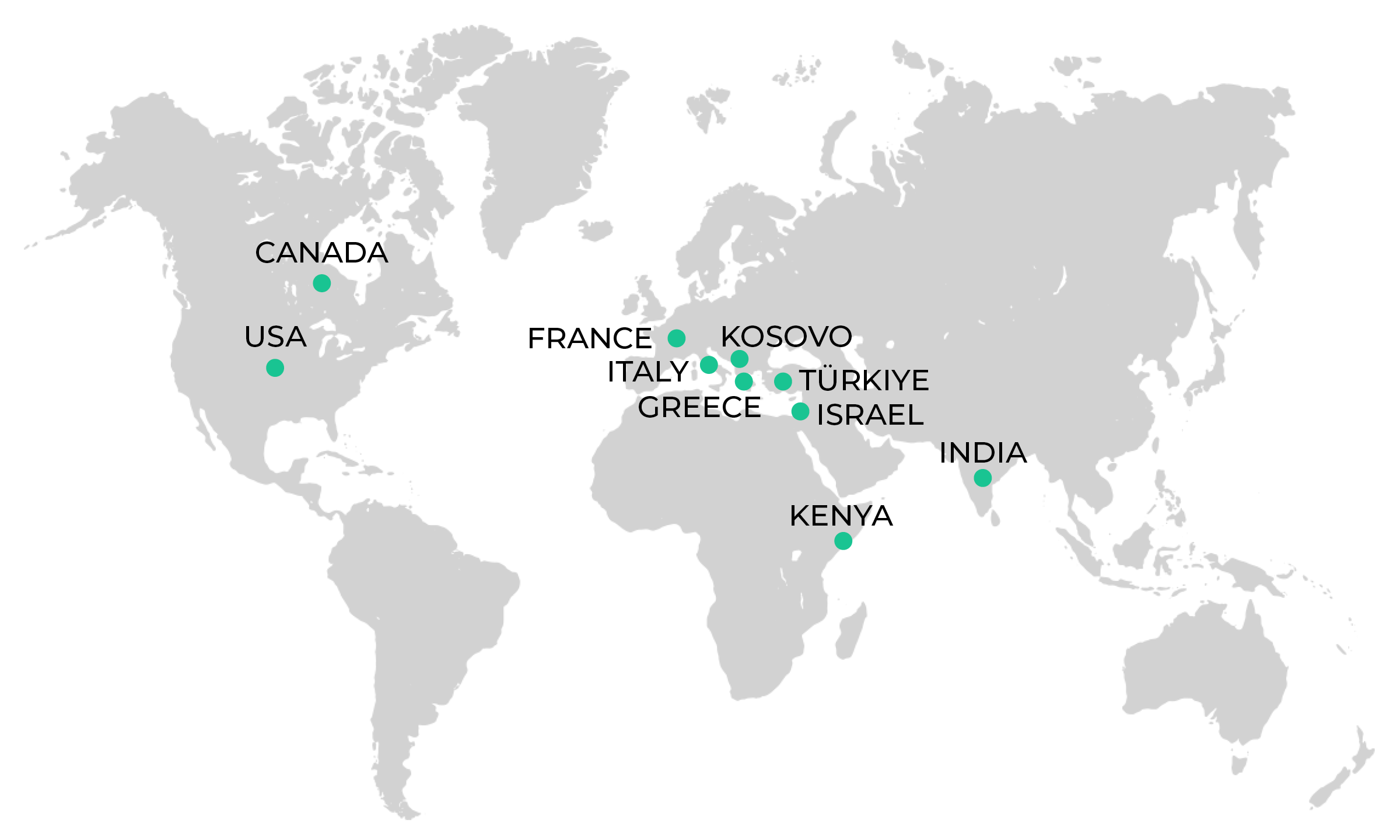
SPEAKERS

Patrizio Paoletti
RINED Research Institute
for Neuroscience Education and Didactics,
Patrizio Paoletti Foundation, Italy
Patrizio Paoletti is the founder of the Research Institute in Neuroscience, Education and Didactics and the Paoletti Foundation for Development and Communication. He developed the Sphere Model of Consciousness, which has recently been considered the most advanced and elegant neuro-phenomenological model for consciousness. His research interests include the investigation of “consciousness-in-itself,” self-awareness and its neurophysiological correlates, sensorimotor paradigms aimed at the development of attention and willpower, and their educational applications. Paoletti has created several techniques aimed at enhancing brain functions, including Quadrato Motor Training, a motor training technique that has proven beneficial in developmental disorders and neurodegenerative states. In the educational field, through his numerous educational projects, Paoletti promotes a global approach to human development in terms of bodily experience, emotion regulation, and the enhancement of attention and self-awareness. The neuroscientific investigation of Paoletti and his Foundation aims to provide scientifically validated educational tools aimed at different age groups, ranging from children to adults, as well as educational professionals and non-specialized audiences. The Paoletti Foundation’s vision is embodied in education for Peace and Awareness as indispensable values for the future of humanity.

Tal Dotan Ben-Soussan
RINED Research Institute
for Neuroscience Education and Didactics,
Patrizio Paoletti Foundation, Italy
Tal Dotan Ben-Soussan, Ph.D., is the director of the Research Institute for Neuroscience, Education and Didactics (RINED) – Paoletti Foundation. Ben-Soussan leads international studies on training and neuroplasticity from neurophysiological and psychobiological perspectives. As a neuroscientist and bio-psychologist, she has published numerous articles on the importance of movement and meditation in improving cognitive and emotional well-being. Her pioneering work on Quadrato Motor Training has led to a significant understanding of the underlying neuronal and biological mechanisms that mediate cognitive improvement following movement meditation for healthy development and aging. Ben-Soussan is fascinated by the topic of consciousness, the enhancement of cognitive functions and their electrophysiological and molecular correlates. She has dedicated more than 20 years to understanding the mechanisms of wellbeing in children and adults and their application in different settings, including schools, hospitals and the workplace. Ben-Soussan is a member of the main think tank of the School Mental Health International Leadership Exchange (SMHILE). Her recent review on the electrophysiological correlates of different states of the self, in relation to different types of meditation and higher states of consciousness, emphasizes the importance of movement in accessing the embodied self, anchored in the here and now, while non-dual practices of transcending the self, allow for a greater state of empathy and connection with the other, such as Patrizio Paoletti’s Quadrato Motor Training and OMM One Minute Mediation. She acts as an editor and reviewer in several renowned journals and coordinates international conferences integrating theoretical, methodological and practical approaches on various topics, such as neuroplasticity, training and neuroeducation. She has edited 3 books on the topic of silence in Frontiers in Psychology and Progress in Brain Research.
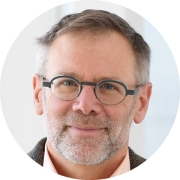
Michael Ungar
Dalhousie University,
Canada
Michael Ungar, Ph.D., is a Family Therapist and Professor of Social Work at Dalhousie University where he holds the Canada Research Chair in Child, Family and Community Resilience. Since 2002, Dr. Ungar has directed the Resilience Research Centre, designing multisite longitudinal research and evaluation projects in collaboration with organizations such as The World Bank, Save the Children, and national public health agencies. Dr. Ungar’s clinical work and research spans more than a dozen low, middle, and high-income countries, with much of that work focused on the resilience of marginalized children and families, and adult populations experiencing mental health challenges. He has published over 250 peer-reviewed articles and book chapters on the subject of resilience and is the author of 18 books for mental health professionals, researchers and parents. These include Multisystemic Resilience: Adaptation and Transformation in Contexts of Change, an edited volume with contributions from more than a dozen diverse disciplines studying resilience, The Limits of Resilience, a book for individuals and organizations experiencing stress, and Working with Children and Youth With Complex Needs: 20 Skills to Build Resilience, a book for mental health professionals. Dr. Ungar is a Fellow of the Royal Society of Canada and past recipient of the Canadian Association of Social Workers National Distinguished Service Award. His blog, Nurturing Resilience, can be read on Psychology Today’s website.

Giacomo Bono
California State University Dominguez Hills,
Carson, CA, USA
Giacomo Bono is a Professor of Psychology at California State University, Dominguez Hills. He has a Ph.D. in Applied Social Psychology from Claremont Graduate University. His research focuses on forgiveness, gratitude, well-being, mental health and development among youth and emerging adults. Dr. Bono is the author of Thanks! A Strengths-Based Gratitude Curriculum for Tweens and Teens, co-author of a book entitled Making Grateful Kids: The Science of Building Character, and co-author of the Gratitude Playbook with Character Lab. As director of the Youth Gratitude Project, he examines youths’ social emotional skills and wellbeing and develops assessment tools and interventions to promote student success and wellness in primary and secondary schools.

Grazia Serantoni
Patrizio Paoletti Foundation,
Italy
Grazia Serantoni is a RINED researcher, developmental and adult clinical psychologist and group psychotherapist, trainer and author of numerous scientific publications. Since the beginning of her professional activity, she has been involved in research, design and evaluation (of processes, impact and outcome) and training in the public and private sectors through collaborations with universities, ministries and private research organizations. In her almost twenty years of collaboration with the Faculty of Medicine and Psychology of the SAPIENZA University of Rome as a Subject Matter Expert (SME), she has participated in research in the areas of: education and promotion of health and positive resources (resilience, emotional regulation, self-efficacy, etc.) in developmental age in school and out-of-school settings; psycho-oncology in developmental age; evaluation of the effectiveness of health promotion interventions in the healthcare and educational fields with adults; evaluation of the effectiveness of clinical and rehabilitation interventions in the psychiatric field. She collaborates with the Patrizio Paoletti Foundation for Development and Communication, within the socio-neuropsychopedagogical area, dealing with the co-design and evaluation of the effectiveness of interventions in emergency, prison, and in particular, educational settings. For the latter area, she is involved in the study and analysis of positive resources in developmental age, such as: resilience, emotional regulation, self-compassion, self-determination, and coping.

Argyroula Kalaitzaki
Hellenic Mediterranean University,
Greece
Argyroula Kalaitzaki (BA, MSc, Ph.D., CPsychol), is an Associate Professor of Clinical Psychology, Social Work Department, Hellenic Mediterranean University (HMU), head of the Laboratory of Interdisciplinary Approaches for the Enhancement of Quality of Life, and head of the postgraduate program “Interdisciplinary Management of Chronic Diseases, Disability, and Ageing”. She is also an affiliated researcher at the “AgriFood and Life Sciences Institute”, deputy head of the Research Ethics Committee, and member of the Training and Lifelong Learning Center at HMU. She was the head of the Social Work Department from February 2022 to February 2024. She received a ΒΑ in Psychology (1992), an M.Sc. (1996), and a Ph.D. in Clinical Psychology (2000) from the University of Crete, Greece, and a second Ph.D. (2005) from the University of Sunderland, U.K. She has also been appointed the European Diploma in Psychological Therapies (European Institute of Psychotherapy). She has nearly 100 peer-reviewed papers and chapters in books, and over 150 presentations at scientific conferences, co-authored and co-edited books. She has participated in many research projects and has 24 years of educational experience in higher education. Her scholarly interests mainly include three applied clinical areas: (a) interpersonal relationships, (b) older people, dementia, and Alzheimer’s disease, and (c) traumatic experiences. Her work is informed by the combination of psychopathology and Positive Psychological concepts (e.g., resilience, positive emotions, relationships, well-being etc).
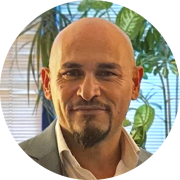
Aras Bozkurt
Anadolu University,
Türkiye
Aras Bozkurt is a researcher and faculty member at Anadolu University, Türkiye. With MA and PhD degrees in distance education, Dr. Bozkurt’s work focuses on empirical studies in areas such as distance education, online learning, networked learning, and educational technology. He applies critical theories like connectivism, rhizomatic learning, and heutagogy to his research. Dr. Bozkurt is also interested in emerging research paradigms, including social network analysis, sentiment analysis, and data mining. Dr. Bozkurt’s studies also cover the integration of artificial intelligence technologies into educational processes in the axis of human-machine interaction.
His dedication to advancing the field is reflected in his editorial roles as the Editor-in-Chief of Open Praxis and Asian Journal of Distance Education, as well as his roles as an associate editor for prestigious journals like Higher Education Research and Development, Online Learning, eLearn Magazine, and Computer Applications in Engineering Education.

Kaltrina Kelmendi
University of Prishtina “Hasan Prishtina”,
Kosovo
Kaltrina Kelmendi, Ph.D., is an associate professor at the Department of Psychology, University of Prishtina, in Kosovo. Her research interests are domestic violence, gender-based violence, youth violence, and child protection. Recently she has been working on the issue of resilience in Kosovo and South-Eastern Europe. Kaltrina was a Fulbright Visiting Scholar during 2020/2021.

Sherry Hamby
University of the South & Life Paths Research Center, USA
Sherry Hamby, Ph.D. is Distinguished Research Professor of Psychology at the University of the South and Director of the Life Paths Research Center. An influential researcher who focuses on trauma and resilience, she has been ranked in the top 1% among more than 6 million researchers in 22 disciplines based on citations to her more than 200 publications. Her awards include Outstanding Contributions to the Science of Trauma Psychology from the American Psychological Association (APA).
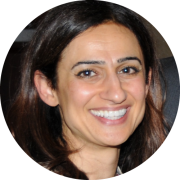
Golnaz Tabibnia
University of California Irvine, USA
Dr. Golnaz Tabibnia is a neuroscientist and an Assistant Research Psychologist in the Department of Psychological Science at the University of California, Irvine. She received her PhD in Psychology at UCLA and was an Assistant Professor at Carnegie Mellon University in Pittsburgh for three years before moving back to California. Dr. Tabibnia’s research focuses on the interaction of emotion and cognition in the brain, including emotion regulation, impulse control, and resilience. Ultimately, she is interested in using insights from neuroscience to explore novel behavioral strategies for improving mental health and wellness. Dr. Tabibnia has received multiple awards for her teaching and research, and her work has been published in such journals as Psychological Science, Journal of Neuroscience, Current Opinion in Behavioral Sciences, and Science, as well as in the Harvard Business Review.
CHAIR

Tania Di Giuseppe
RINED Research Institute
for Neuroscience Education and Didactics,
Patrizio Paoletti Foundation, Italy
Tania Di Giuseppe is a psychologist, psychotherapist and Head of the Psycho-Pedagogical Research Department of the Patrizio Paoletti Foundation’s RINED Institute. She collaborates with various universities to promote training and research on the constructs of mindfulness, hope, resilience and planning. An expert lecturer in Pedagogy for the Third Millennium, she is involved in the design and supervision of psycho-pedagogical interventions and training courses for professionals, teachers and communities, particularly in the context of emergency and social marginalization. Since 2017, she has been the Director and Co-Creator of the educational, scientific, outreach program Envisioning the Future: Promoting Hope and Planning, which has reached and trained more than 200 thousand people over several years of intervention: schools, communities affected by natural and other disasters, prison communities, families and adolescents.
ORGANIZING BODY
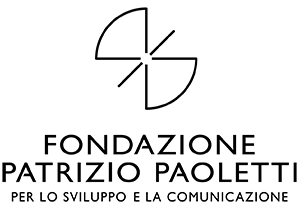
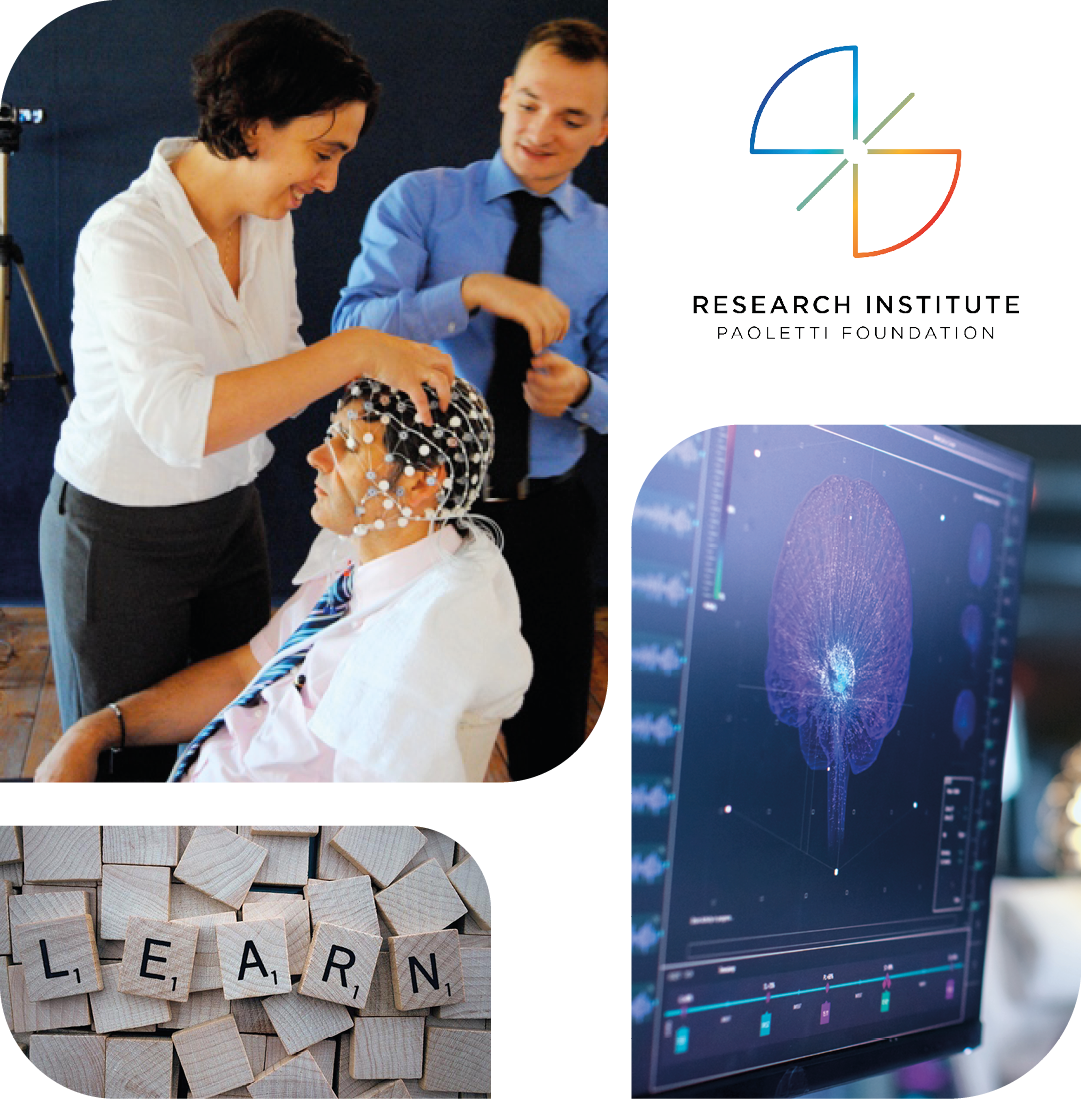
Through the activities of its Research Institute for Neuroscience, Education, and Didactics (RINED), Fondazione Patrizio Paoletti promotes people’s health, resilience, and wellbeing, disseminating practical, immediate, innovative and effective strategies to support individuals facing a constantly changing world.
rined.
http://rined.institute/
http://rined.institute/
of the Resilience for Future Round Table
Psycho-pedagogical team of the Patrizio Paoletti Foundation
The Patrizio Paoletti Foundation, an interdisciplinary research institute located in Assisi and Rome, has been working since 2000 to bring innovation in pedagogical and neuroscientific sciences. Combining research evidence from psychology, social cognition, neuroscience and education, our mission is to guide individuals and communities towards well-being, knowledge and peace. One of the main variables we work on is resilience, defined as the ability to bend without breaking and to use pain for emotional, mental, physical and spiritual growth.
SCIENTIFIC COORDINATION
- Tania Di Giuseppe, Psychologist and head of the Department of Research and Didactics at Fondazione Patrizio Paoletti’s RINED institute
- Carmela Lillo, Educational Project Manager
- Grazia Serantoni, Researcher, Developmental and Adult Clinical psychologist and group psychotherapist, trainer and author
- Tal Dotan Ben-Soussan, Director of the Research Institute for Neuroscience, Education and Didactics (RINED) – Paoletti Foundation

Fondazione Patrizio Paoletti per lo sviluppo e la comunicazione
Via Nazionale 230 – 00184 Rome
p.iva: 02730800543
Tel. +39 06 8082599 – Fax 06 92912688
fondazione@fondazionepatriziopaoletti.org


